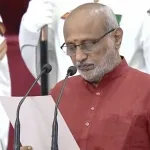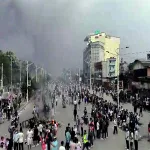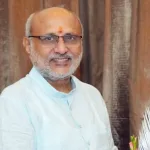Pursuing a Ph.D. is often described as a journey of self-discovery, discipline, and persistence. This characterization couldn’t be more accurate. My experience at the Islamic University of Science and Technology (IUST) was a transformative chapter of my life. It was a period filled with intellectual challenges, emotional highs and lows, and countless lessons. Each phase of the journey came with its own set of struggles, breakthroughs, and moments of clarity that shaped not only my academic pursuits but also my personal growth. In this article, I reflect on my experiences and offer key strategies and lessons for those who are currently navigating or considering a Ph.D. journey. The experience was not just an academic initiation but a deeply philosophical journey that taught me the importance of knowledge, observation, and discipline in research.
The Foundation: Laying the Groundwork in the First Semester
The first semester of a Ph.D. sets the tone for what lies ahead. It is where the groundwork is laid, both academically and philosophically. For me, this phase was an eye-opener. The coursework at IUST introduced me to a structured approach to research and the importance of disciplined observation. It was not just about fulfilling academic requirements but about embracing the process of inquiry.
Every research journey begins with observation. Just as constructing a home requires an outline and mapping the foundation, research begins by observing the world and mind-mapping its intricacies. Social science research, in particular, thrives on understanding human behaviour, societal patterns, and cultural phenomena. Philosophically speaking, observation is not just about looking; it is about seeing with intent and understanding with depth. A researcher must see the mundane with fresh eyes and the complex with clarity. This first semester taught me that observation is the bedrock of all scholarly endeavours.
A researcher must train their mind to observe, reflect, and analyze the world around them, enabling the identification of problems and research gaps. Just as constructing a house requires a well-thought-out outline, research demands careful planning and observation as its base. This phase is essential for mapping the research journey. Interaction with teachers is paramount; their guidance can unlock pathways of thought previously unknown.
The second semester was a pivotal phase in my journey. Drafting the research synopsis was one of the most challenging tasks I faced. However, this phase taught me an invaluable lesson: research is a journey of refinement. The final product is never achieved in a single attempt; it is the result of continuous effort and adaptation.
My supervisor, Dr. Ruheela Hassan, played a critical role in this phase. Her mentorship was both supportive and empowering. She encouraged me to think independently while providing insightful feedback that helped me refine my ideas. What stood out was her ability to instil confidence in me without imposing anything on me. Her “motherly nature” helped me to carve out a definite path for myself. The impact of her motherly nature cannot be overstated. In a journey often fraught with self-doubt and uncertainty, her empathy and understanding provided a sense of security. She transformed the supervisor-scholar relationship from one of mere oversight to a bond rooted in mutual respect and growth. It is a myth that supervisors are distant or intimidating; mentors like Dr. Ruheela unveil the truth; they are kind, approachable, and deeply invested in their students’ success.
Crafting a synopsis is akin to chiselling a rough stone into a sculpture and requires patience, precision, and a willingness to reshape one’s ideas. The process also revealed a deeper truth: research is not a solitary endeavour. While it is the researcher’s vision that shapes the study, the insights and critiques of others act as guiding stars, ensuring the journey stays true. Moreover, drafting a synopsis is akin to planting a seed. The seed carries within it the potential for growth, but it needs nurturing, sunlight, and space to flourish. Similarly, the synopsis is the germination of a research idea. It requires the scholar’s dedication, the mentor’s guidance, and the collective wisdom of the academic community.
Writing my first research paper was a milestone in my Ph.D. journey. This task was as rewarding as it was challenging. Translating complex ideas into a coherent narrative required clarity of thought, a structured approach, and meticulous attention to detail. The process of writing taught me that academic work is not just about generating ideas; it is about articulating them in a way that resonates with others.
This phase also included a pilot study that gave me practical insights into my research methodology. However, I encountered unexpected hurdles, such as the lack of archival resources at institutions like AIR Srinagar and Doordarshan Srinagar. These challenges tested my adaptability and forced me to pivot. I turned to alternative methodologies, such as Interpretative Phenomenological Analysis (IPA), which proved to be a flexible and insightful approach. IPA method was challenging but unique and Dr. Mujeeb Liyakat provided me this idea of using IPA before I started employing the method. Back to the pilot study, I still remember one of the lectures of Dr. Monisa Qadiri in which she emphasized on the importance of Pilot study and enunciated that, “Conducting pilot study is revisiting your research without tears, otherwise later changing or modifying your research is very stressful and many scholars don’t handle the pressure.”
A scholar should conduct his/her literature review as earliest as possible in order to find a research lacuna. Conducting a thorough review of the literature early in the process allows you to identify existing research gaps and build a strong foundation for your study. In my case, discovering the gap regarding the lack of a Media Emergency Plan in South Asia became a central theme in my research. The literature review is not just about summarizing existing work, but about unveiling gaps, understanding what’s missing, and crafting research that addresses those gaps in a unique way.
By the fourth semester, my work had entered its most intensive phase. Data collection became the central focus, requiring long hours of transcribing interviews, coding data, and analyzing patterns. It was an exhausting but deeply fulfilling process. Engaging with participants through in-depth interviews provided rich insights that added depth to my research.
This semester taught me the importance of consistency and discipline. Establishing a routine for data collection and analysis helped me stay on track. Additionally, regular interactions with my supervisor provided much-needed guidance and reassurance during moments of doubt. Research, I realized, cannot be confined to the walls of a room. It requires stepping out into the world, engaging with real-life contexts, and embracing the unpredictability of the field. My visits, though fraught with challenges, underscored the importance of being proactive and resourceful.
In addition to my supervisor’s guidance, I regularly interacted with other faculty members who provided valuable insights. This collective wisdom enriched my understanding and helped refine my approach. Collaboration is a cornerstone of effective research; it broadens perspectives and ensures the scholar does not remain confined to their own biases or blind spots.
The fifth and sixth semesters were a lesson in adaptability. When archival resources were unavailable, I turned to alternative methods like content analysis of documentaries and case studies. A door-to-door survey across various regions of Kashmir further enriched my findings. Each interaction during the survey highlighted the human connection in research, reminding me that data is not just numbers but stories.
The use of triangulation, combining multiple methodologies, added layers of depth to my study. This phase reinforced the importance of creative problem-solving and the ability to adapt when faced with unexpected obstacles. The pre-submission phase provided validation for my efforts, affirming the robustness of my methodology and findings.
The sixth semester was a culmination of years of effort. Writing the thesis was an immersive process, demanding focus, discipline, and creativity. Contrary to the common perception of thesis writing as a gruelling ordeal, I found it to be a rewarding experience. Revisiting my research and synthesizing my findings into a cohesive document was both challenging and fulfilling.
The submission of my thesis was a moment of immense pride. It marked the end of one journey and the beginning of another. This phase dispelled many myths about Ph.D. research, particularly the idea that it is an insurmountable challenge. With the right approach, thesis writing can be a deeply engaging and enjoyable process. Research, like life, is an art of perseverance. The fifth semester reminded me of the philosopher’s words: “When the path is unclear, walk forward, and the way will reveal itself.” In seeking alternatives, embracing challenges, and integrating diverse methods, I learned that the heart of research lies not in perfection but in persistence.
Demystifying the Myths of Research
The world of Ph.D. research is often portrayed through memes and social media posts as a gruelling, thankless journey filled with unhelpful supervisors and endless revisions. These portrayals are not only misleading but also detrimental to the spirit of research. My experience at IUST was the polar opposite. My mentors and supervisors were pillars of support, guidance, and encouragement, shattering the stereotypes perpetuated online. The reality is that research, especially at IUST, is a collaborative and enriching experience. It demands perseverance, yes, but it also offers moments of profound satisfaction and growth.
A Landmark Contribution: The Media Emergency Plan and The MEDR Theory
One of the crowning achievements of my Ph.D. was the creation of the Media Emergency plan and Media Enhanced Disaster Resilience (MEDR) Theory. This framework addresses critical gaps in disaster communication by emphasizing ethics, trust-building, and accountability. Its focus on practical applications makes it a valuable guide for media professionals during crises.
The Emergency plan is a robust plan and only one in the South Asia for Broadcast Media. The MEDR Theory exemplifies the power of research to address real-world problems. By integrating ethical considerations with practical strategies, it offers a holistic approach to disaster communication. This contribution not only enriched my academic journey but also reaffirmed my belief in the transformative potential of research.
Reflecting on my Ph.D. journey, I realize that it was as much about personal growth as it was about academic achievement. Each phase brought unique challenges and lessons that shaped my approach to research and life. I completed this milestone in just three years and therefore, it is possible to complete the study within the timeframe. IUST and my department (DJMC) played a crucial role in completing the study on time. For those pursuing Ph.D., my advice is simple: embrace the process, even when it feels overwhelming. Focus on developing core skills like observation, writing, and adaptability. Seek mentorship and collaboration, as they are invaluable resources. Most importantly, remember that every challenge is an opportunity to learn and grow.
Bottom-line
Through my Ph.D. lens, I see a journey defined by perseverance, curiosity, and a commitment to making meaningful contributions. As you navigate your own path, hold onto these principles, and let them guide you toward success.
(Author is an RK columnist. He has completed his Doctor of Philosophy in Journalism and Mass Communication from IUST, Awantipora. He can be reached at: [email protected])








